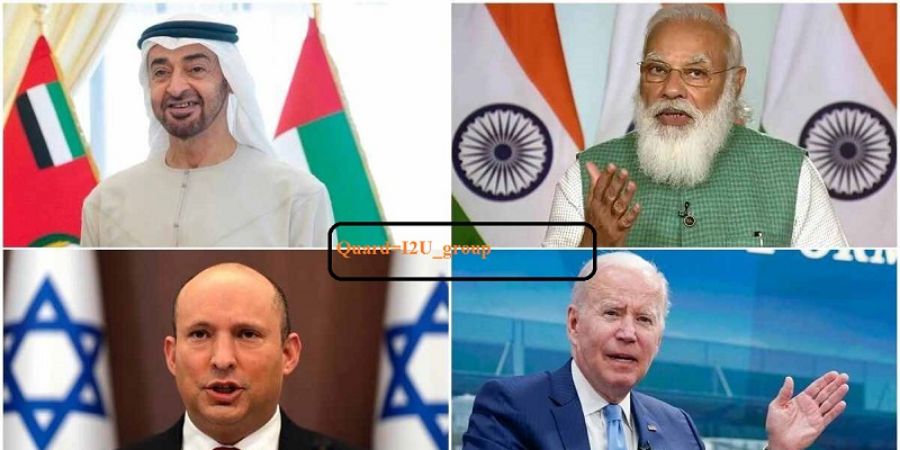


US President Joe Biden visited Israel for the first time since taking office. Israel is America's most important ally in West Asia. Biden attended the first virtual summit of a new group 'I2U2' during his visit. This name is also very interesting. 'I' stands for India and Israel and 'U' stands for US and UAE.
India is a part of this unique group of four countries. It is also known as the 'West Asian Quad'. India has strategic partnerships with each of the other three countries. In October last year, when there was a virtual meeting of the foreign ministers of the four countries, some doubts arose about the agenda and purpose of the new grouping in the Middle East.
However, the 14 July summit made it clear that the primary agenda of 'I2U2' is economic, with new initiatives on joint investment projects in six specific sectors – water, energy, transport, space, health, and food security. Special attention has been given. Indian Prime Minister Narendra Modi has praised the new grouping for setting a positive agenda and providing a practical model in the face of global uncertainties.
The four-member states of 'I2U2' are keen to mobilize private sector capital and expertise to modernize infrastructure and develop public health and green technologies. Several meetings between senior executives and industry representatives have also taken place in the context of giving a strong shape to the two ambitious projects related to food security and clean energy. India will benefit from both projects.
The UAE will invest two billion dollars in the food security project. A network of integrated food parks will be developed in Gujarat and Madhya Pradesh with this fund. It will also incorporate climate-smart technologies to reduce food waste, prevent spoilage, conserve fresh water and employ renewable energy sources.
India has available land for this and Israel will provide advanced hydroponics technology. This project is not limited to producing more food grains. This will also give a new dimension to the India-UAE Food Corridor project, which is important for food security in the Gulf countries and South Asia.
The project also includes a review of trade barriers, harmonization of food safety and quality standards, and standards for transportation to facilitate the flow of food products from India to Gulf countries. India is also expected to participate in the climate agriculture innovation missions of the US, UAE, and Israel.
The project will generate a range of facilities in hybrid renewable energy including wind and solar power capability with advanced battery storage technology. This project will be set up in Dwarka, Gujarat. $330 million will be invested in it. UAE companies are expected to join as a provider of capital and technology. This will reduce the current dependence on China.
The emergence of this new group is clearly an evolution of the August 2020 Abraham Agreement. The new grouping will boost US efforts to curb Chinese influence in Asia. The two projects proposed in India symbolize the remarkable maturity that Indian diplomacy has shown. This grouping will undoubtedly help in establishing India as a credible, strategic, and development partner in the West Asian region. At the same time, a strong partnership between India and Muslim countries can also come into existence in West Asia.




